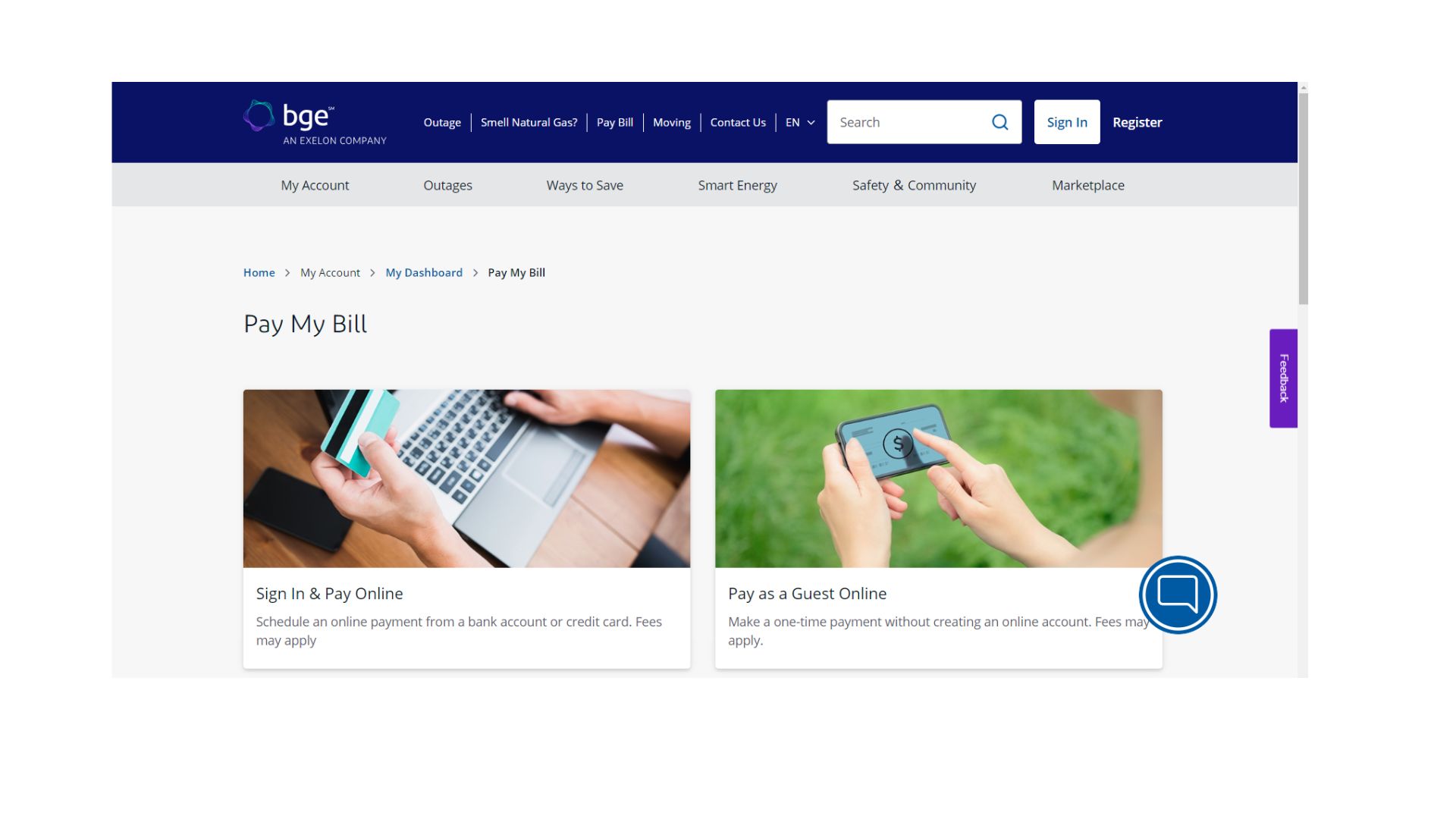
End the Gas Utility Blank Check
The Maryland legislature is considering a proposal to update the STRIDE program to ensure gas infrastructure spending prioritizes safety and is cost effective.
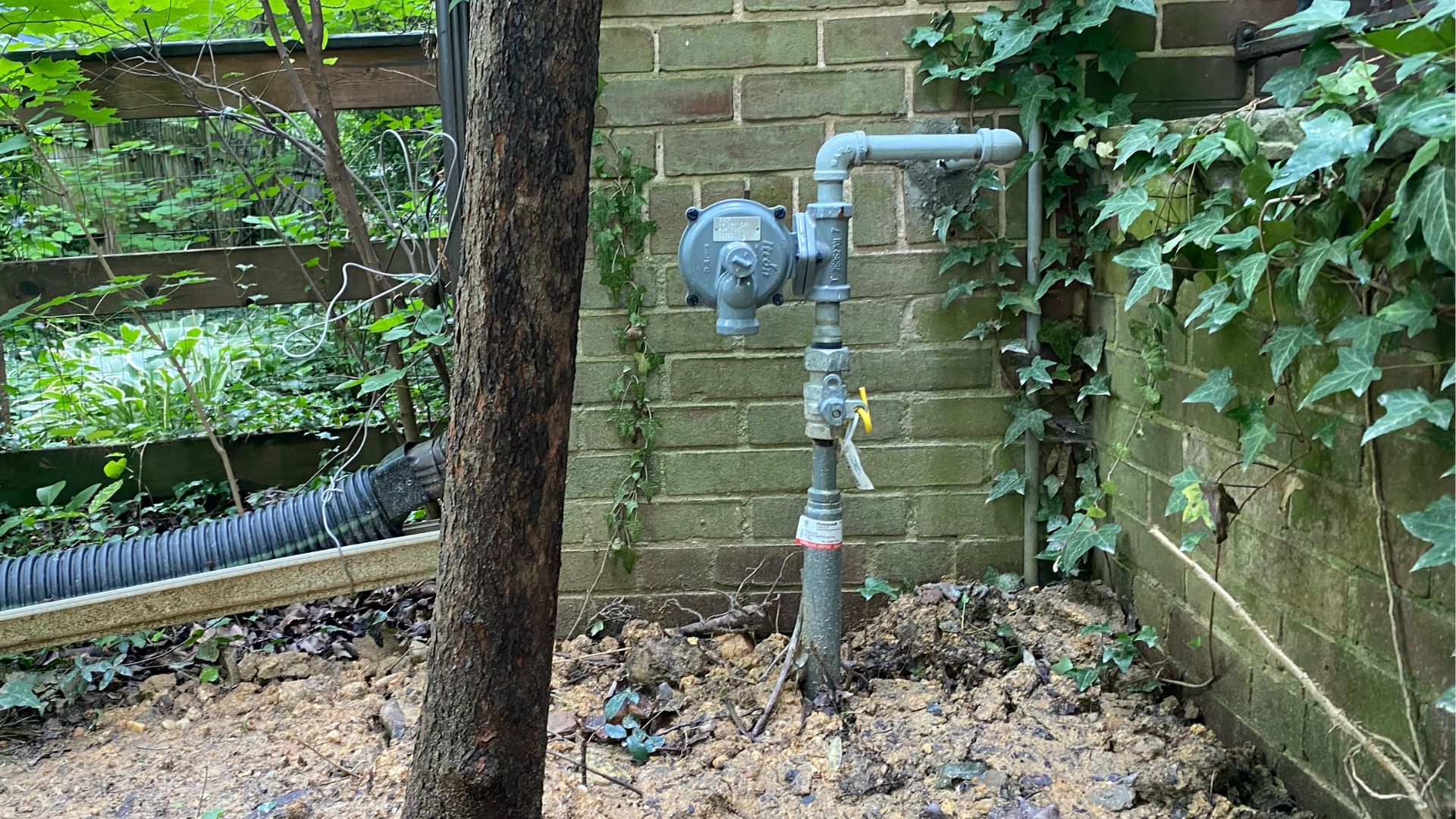
What is S.T.R.I.D.E.?
There are thousands of miles of underground gas pipelines, some of which are more than 100 years old in places like Baltimore City, that provide heat and power to just under half of Maryland homes.
Marylanders are all too familiar with the risks of gas leaks and explosions. Worried about the need to maintain this aging system, the state legislature enacted the Strategic Infrastructure Development and Enhancement Plan (STRIDE) law in 2013. The law allows the gas utilities to charge customers more every month so they can ensure the safety of our gas system.
Unfortunately, a decade after the STRIDE law was passed, it’s clear that instead of prioritizing fixing the riskiest pipes, the gas utilities are spending wastefully to boost profits.
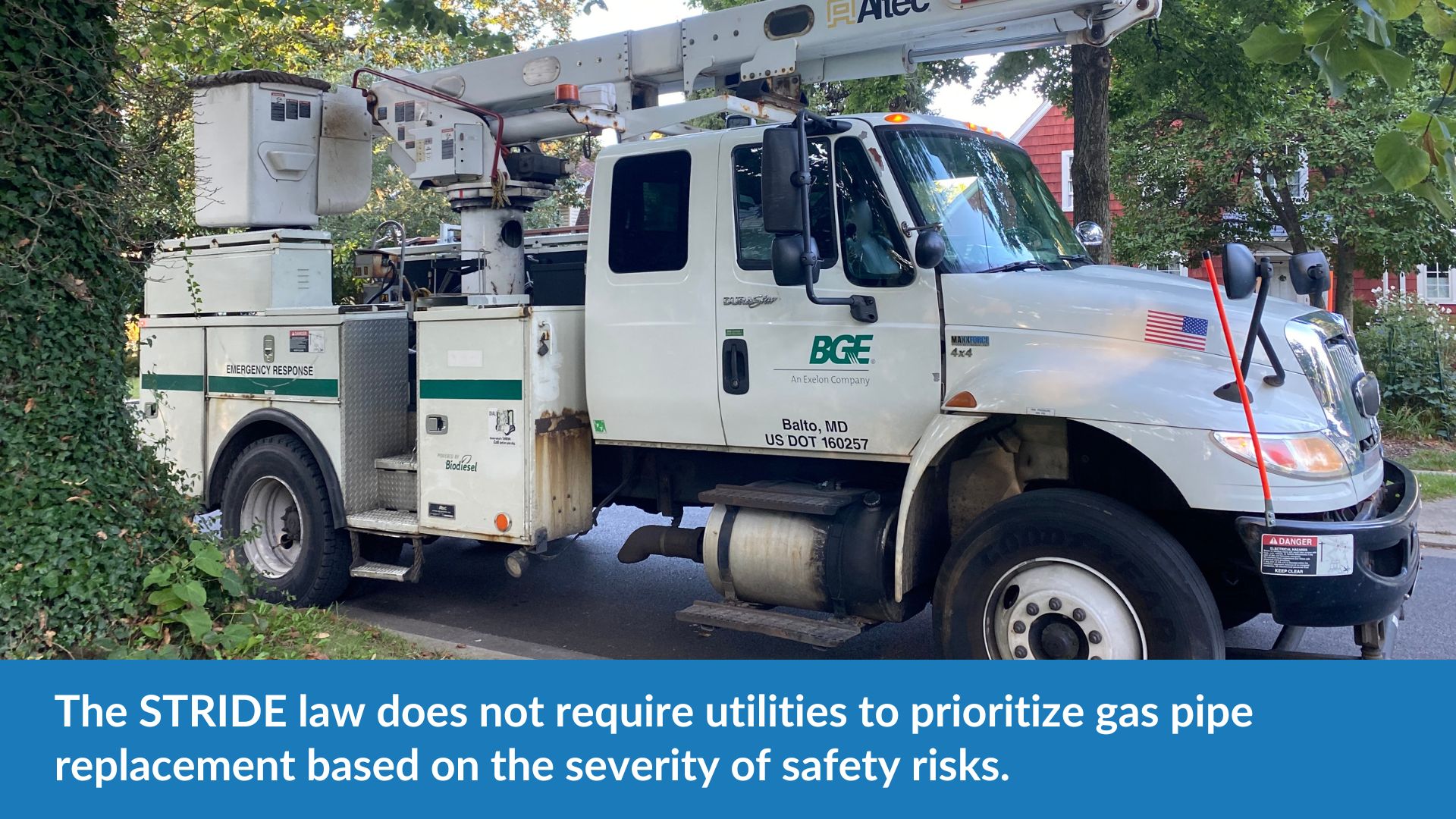
End the Gas Utility Blank Check
Tell your legislators to require utilities to prioritize gas pipe replacement based on the severity of safety risks.
STRIDE’s impact
STRIDE enabled spending is driving up utility bills short and long term. Under STRIDE, the utilities are allowed to add an additional $2 surcharge on top of monthly utility bills, but this only covers a small portion of the cost. Ratepayers will be on the hook to pay for the utilities’ billion dollar pipe replacement program for decades to come. And because of the law’s existence, regulators have been hesitant to rein in some of this spending.
Much of the impact on ratepayers from the current STRIDE law has to do with the utility’s choice to perform a broad overhaul of the gas system instead of strategically addressing the riskiest pipes for replacement. Putting in new pipes is more profitable for the utilities than making repairs.
- The utilities install new pipes and related equipment, and customers pay for all that spending plus a hefty return, including profits, of about 9% after taxes for the lifetime of the equipment. Functionally, these projects are like taking out mortgages with high interest rates that gas customers have no choice but to pay for.
- Our $2 a month is just a small fraction of the costs that are locked into charges for decades to come.
For example, this summer BGE threatened to turn off gas for customers who refused new external gas regulators. The work to install the external regulators is more expensive than replacing the internal regulators, and the PSC later ruled that customers should have the option of internal or external.
The Cost of STRIDE
According to the Office of the People’s Counsel, Maryland gas utilities have spent more than two billion dollars on new gas infrastructure under the STRIDE program since 2014, and will spend nearly 10 billion total to complete the program.
The utilities expect ratepayers to pay for this spending plus additional profits for utilities over many decades, adding more than 40 billion dollars to their utility bills over the life of the program.
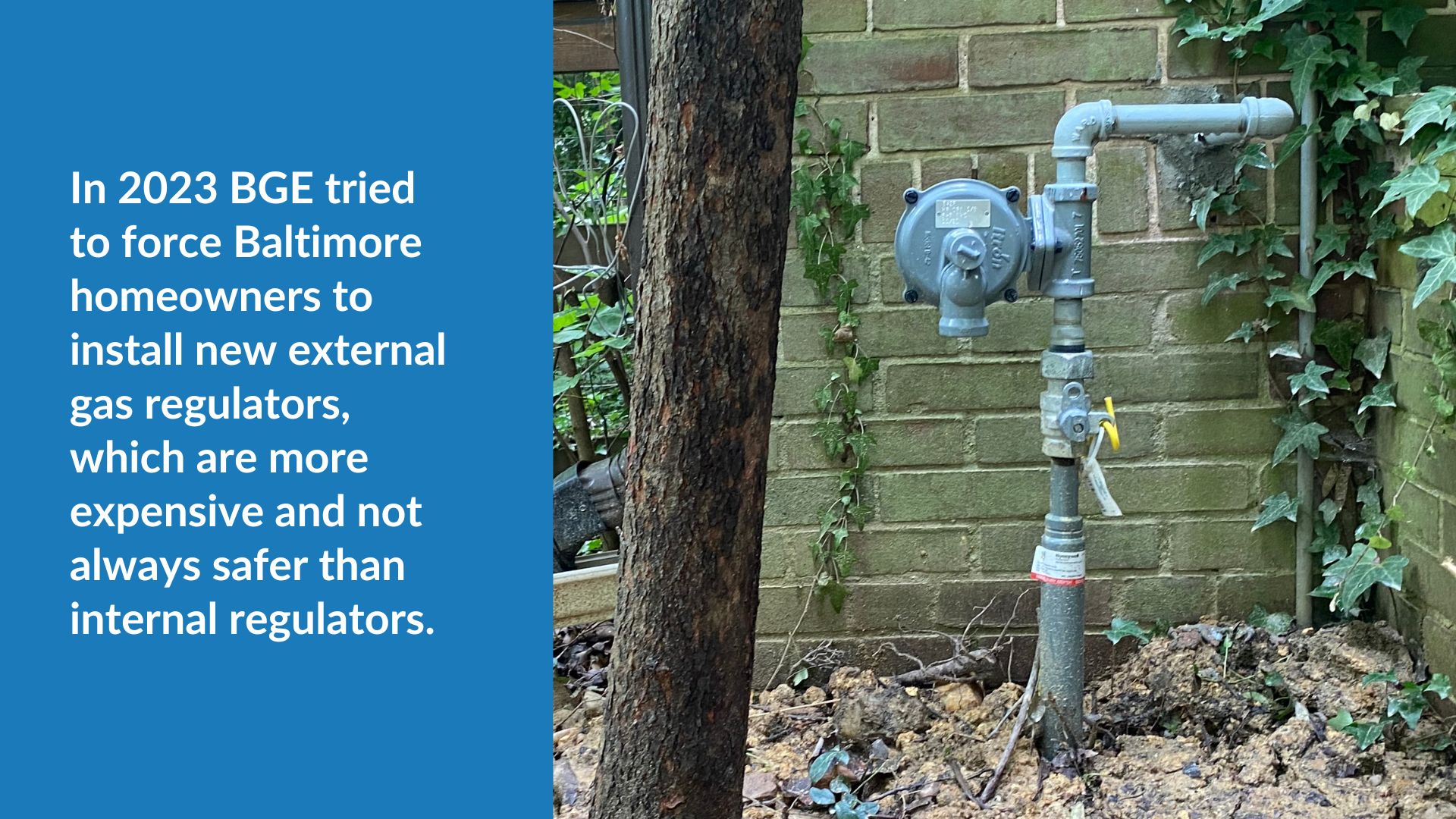
Environmental concerns
Marylanders need gas utilities to maintain the safety of the system while we still need it, but overspending on new infrastructure doesn’t make sense for our climate goals or for ratepayers.
Maryland’s Climate Solutions Now Act of 2022 directs the state to shift away from the use of fossil fuels to power our homes. While the shift won’t happen overnight, we should be especially thoughtful about our approach to new gas infrastructure.
We didn’t intend to give the utilities a blank check, and we can’t afford to waste money on upgrades we don’t need, especially when we could be investing that money on cleaner, safer energy to heat our homes. That’s why we’re calling on the legislature to go back to the original plan — and tell the utilities they can only charge customers for legitimate, urgent safety repairs.
The Ratepayer Protection Act
The Maryland legislature is considering a proposal to update the STRIDE program. The Ratepayer Protection Act (SB548/HB731) is sponsored by State Sen. Sydnor and Del. Embry to modify the STRIDE program to prioritize highest risk pipes and to consider less costly alternatives to replacement. This bill codifies recommendations from the Maryland Climate Commission and the Building Energy Transition Implementation Task Force.
The bill requires gas utilities to:
- Use modern leak detection technology when cost effective (that wasn’t available a decade ago);
- Use a “fix it first” approach to gas infrastructure instead of replacement when cost effective;
- Give gas customers 2 years notice before work in their home so they have time to plan; and,
- Generally ensure gas infrastructure spending is cost effective.
This commonsense reform is an important step in ensuring ratepayer dollars are spent prudently and will enable state regulators to more effectively watchdog the utilities’ spending plans.
Additional Resources
Maryland PIRG Factsheet on Ratepayer Protection Act of 2024.
Report: Maryland Gas Utility Spending, Nov. 2023 (via Office of the People’s Counsel)
Part 1: BGE’s multi-year rate hike will increase pollution
Topics
Authors
Emily Scarr
State Director, Maryland PIRG; Director, Stop Toxic PFAS Campaign, PIRG
Emily directs strategy, organizational development, research, communications and legislative advocacy for Maryland PIRG. Emily has helped win small donor public financing in Baltimore City, Baltimore County, Howard County, Montgomery County, and Prince George's County. She has played a key role in establishing new state laws to to protect public health by restricting the use of antibiotics on Maryland farms, require testing for lead in school drinking water and restrict the use of toxic flame retardant and PFAS chemicals. Emily also serves on the Executive Committees of the Maryland Fair Elections Coalition and the Maryland Campaign to Keep Antibiotics Working. Emily lives in Baltimore City with her husband, kids, and dog.
Find Out More
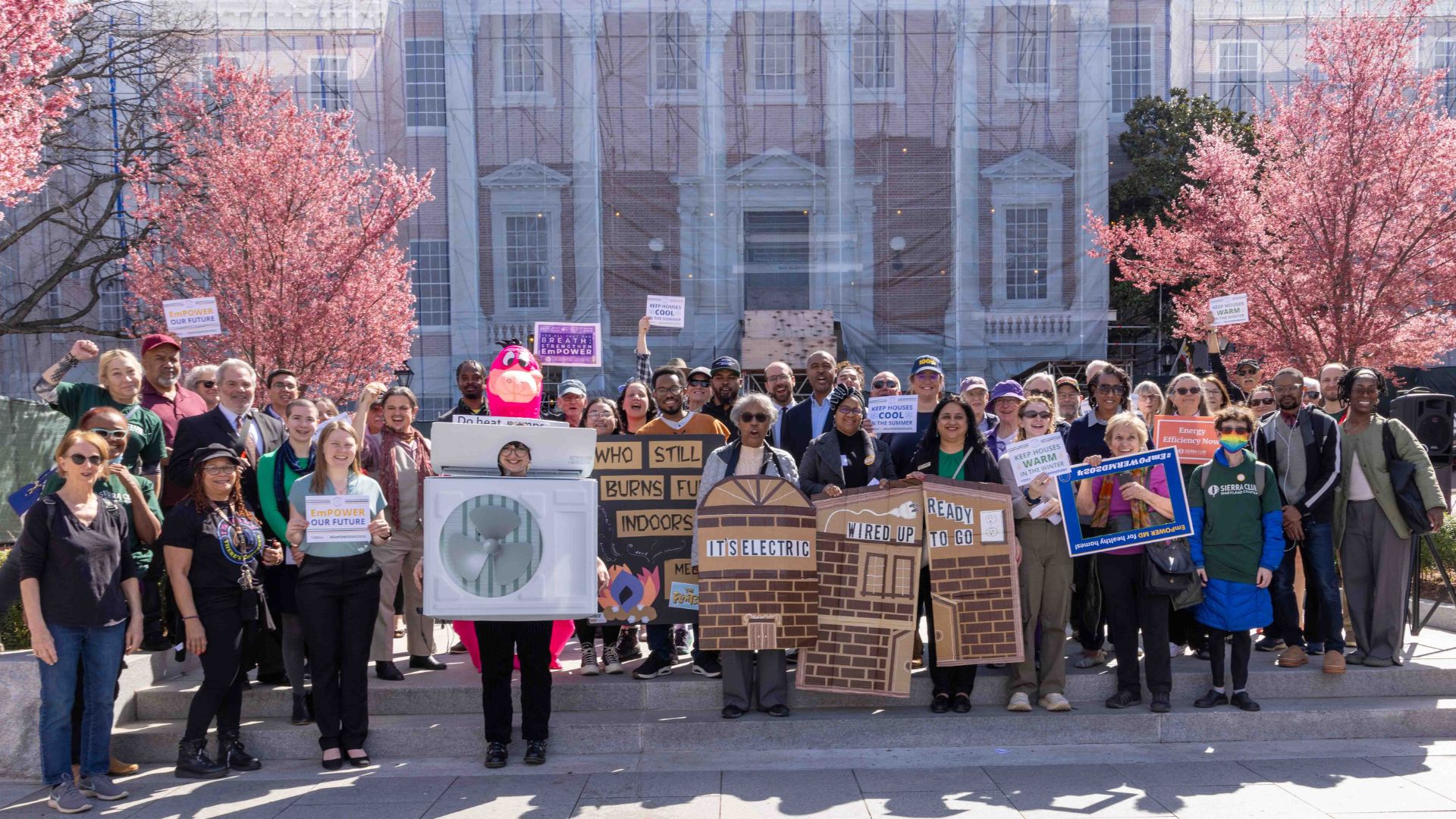
2024 Maryland Legislative Session: Wins and Losses
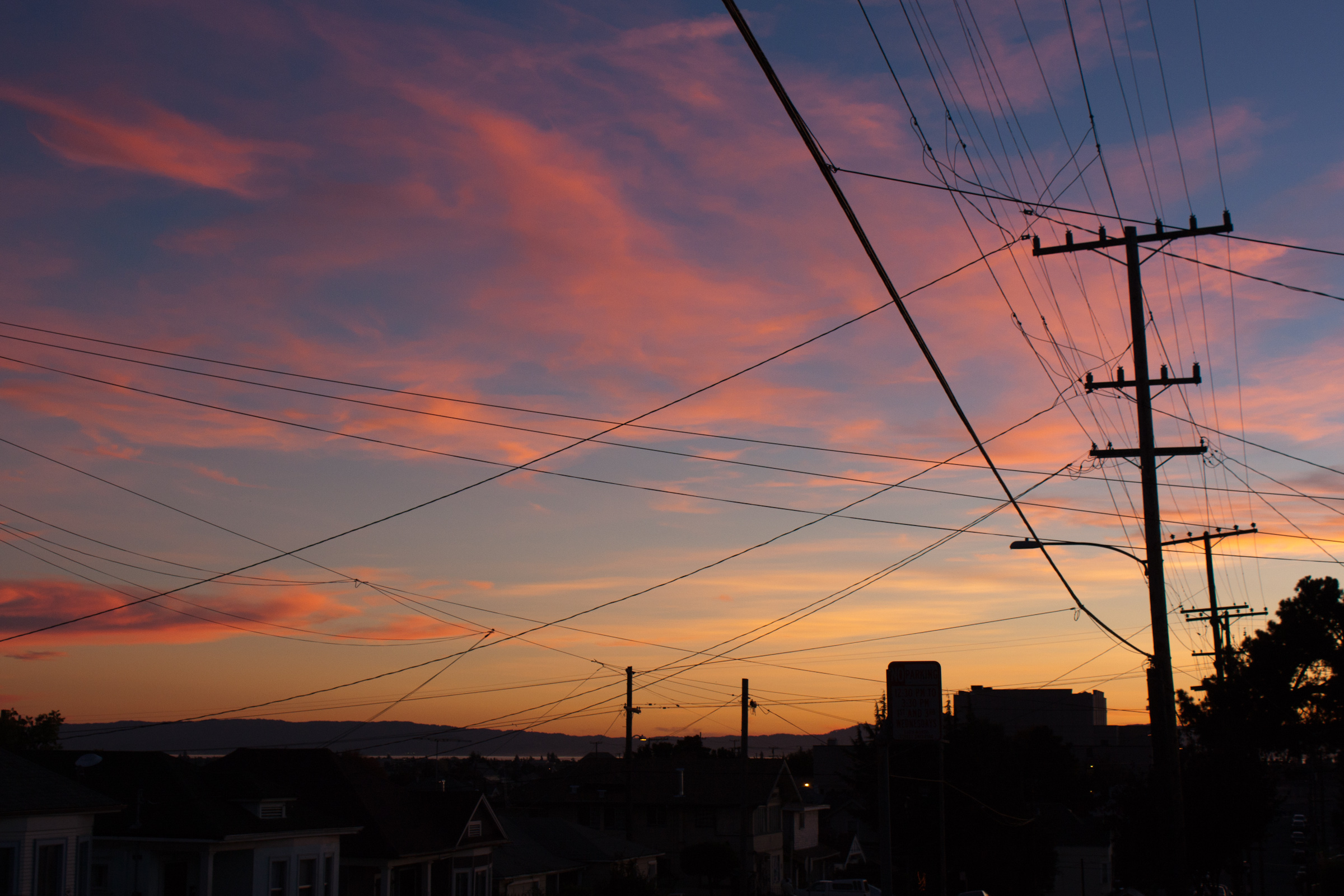
Electric and gas utilities spend millions on political influence in Maryland

The EmPOWER Maryland Energy Efficiency Act needs an update
